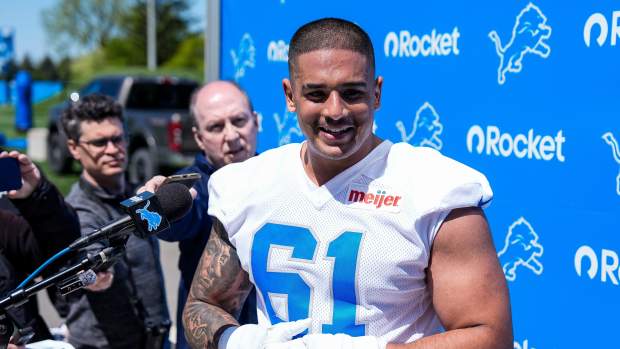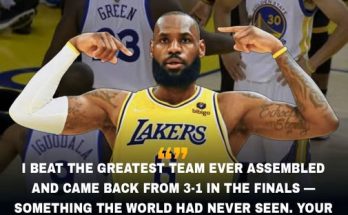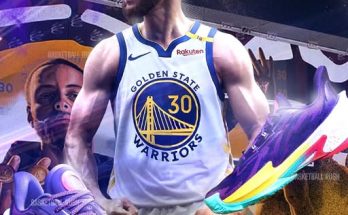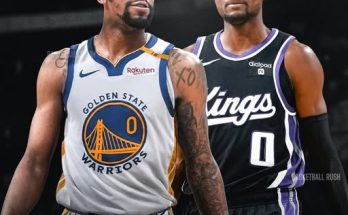In a move that sent ripples through NFL circles and intrigued analysts across the league, the Detroit Lions made a bold and unconventional roster decision—selecting defensive end Ahmed Hassanein and, in doing so, acquiring an additional international roster slot under the NFL’s International Player Pathway Program (IPPP). For a team with playoff aspirations and a steadily improving defense, the Lions’ decision to welcome Hassanein isn’t just about depth—it’s a calculated investment in potential, diversity, and global growth.
Who Is Ahmed Hassanein?
Ahmed Hassanein is no ordinary NFL hopeful. Born and raised in Egypt, Hassanein represents one of the rare few who have crossed continents and cultural barriers to pursue a professional American football dream. A towering presence at 6-foot-6 and 260 pounds, Hassanein turned heads during IPPP tryouts with his elite athleticism, raw strength, and relentless motor. Though still developing in terms of technique and football IQ, Hassanein’s physical tools are tantalizing.
Hassanein grew up playing handball and basketball in Cairo but discovered American football in his late teens through a small but passionate local club. His rapid improvement in the sport drew the attention of international scouts, and soon he was training at the NFL Academy in London. From there, he caught the eye of officials involved in the International Player Pathway Program—a gateway for foreign-born athletes to join the NFL without taking up one of the traditional 53-man active roster slots during their first year.
For Detroit, his arrival is more than symbolic. It’s strategic.
The International Player Pathway Program and the Extra Roster Slot
Since 2017, the NFL has used the International Player Pathway Program to foster global talent and grow the game beyond American borders. Each year, players from outside the United States are selected to join NFL teams, with one from each division given the opportunity to carry an additional practice squad member if they use it on an international player.
In 2025, however, the NFL expanded its rules: teams selecting IPPP players from the designated international draft pool are now awarded an extra training camp roster slot and can receive an exemption for the practice squad if the player remains through the season. This gives clubs like the Lions the chance to carry 91 players during camp instead of the standard 90, providing more flexibility and room to develop raw but promising international prospects like Hassanein.
Detroit’s coaching staff, led by head coach Dan Campbell, was quick to pounce on that opportunity.
Lions’ Defensive Front Just Got Deeper
The Lions’ defensive line already boasts some exciting talent. Aidan Hutchinson has emerged as a franchise cornerstone, while the front office has steadily added complementary pieces through the draft and free agency. However, as any savvy NFL coach will tell you, you can never have too many edge rushers.
“We like his size, his explosion off the edge,” defensive coordinator Aaron Glenn said when asked about Hassanein. “He’s obviously still learning the nuances of the game, but the way he moves—he’s got tools you just can’t teach. We’re excited to get him into our program and start working with him.”
By adding Hassanein, Detroit doesn’t just get a long-term project with a high ceiling—they also gain an extra body for training camp battles, where injuries, attrition, and snap counts can strain even the deepest teams.
The Lions plan to start Hassanein on the practice squad under the IPPP exemption, shielding him from being poached by other teams while allowing him to develop under NFL coaches. If he shows growth, he could eventually compete for a role as a rotational pass-rusher—an area Detroit still wants to bolster.
A Cultural and Organizational Fit
There’s another reason the Lions felt comfortable selecting Hassanein: he fits the culture.
Dan Campbell’s mantra of “grit,” toughness, and hard work has transformed the team from perennial rebuilders to legitimate NFC contenders. In Ahmed Hassanein, the Lions see a player whose journey—rising from obscurity in Egypt to the doorstep of the NFL—embodies those same values.
General Manager Brad Holmes emphasized that when speaking to the media after the selection.
“This guy’s story is incredible,” Holmes said. “The dedication he’s shown, the sacrifices he’s made to get here—it’s inspiring. But we’re not just doing this to be inspirational. Ahmed is here to compete. We believe in his upside, and we believe in the people we have who can coach him up.”
Holmes has made it a point throughout his tenure to blend high-character players with elite traits. Hassanein might be raw, but his character, perseverance, and upside all align with what Detroit has been building.
The Globalization of the NFL—and Detroit’s Role
From a league-wide perspective, the Lions’ decision to select Hassanein also underscores the NFL’s increasing push toward globalization. With games now regularly played in London, Germany, and potentially even Brazil or Spain in the near future, the league is eager to tap into international markets—and developing international players is a vital part of that strategy.
By participating actively in the IPPP, Detroit positions itself as one of the league’s forward-thinking franchises. It’s a smart play: by welcoming global talent, they not only enhance their roster but also boost their brand across borders.
And it may pay off financially and reputationally as well. Should Hassanein become a meaningful contributor, his story would draw attention not only from American fans but from millions in the Middle East and North Africa. For the Lions, that would be a win in more ways than one.
What Comes Next for Hassanein?
The real journey starts now. The Lions’ offseason program will be the first full exposure to NFL coaching and conditioning for Hassanein, who has only played in organized games in European leagues and international showcases. Learning the playbook, adjusting to the speed of the game, and refining his hand techniques will be his top priorities.
While Hassanein is unlikely to crack the 53-man roster in Year 1, the Lions are expected to use the IPPP practice squad exemption to retain him throughout the 2025 season. During that time, he’ll be immersed in the Lions’ developmental system, training alongside Hutchinson, Marcus Davenport, and other veterans.
Lions defensive line coach John Scott Jr. has already mapped out a plan.
“We’re going to keep it simple at first—work on his stance, get his get-off right, teach him how to read formations and adjust,” Scott said. “But the foundation is there. He’s got the body, he’s got the desire, and he’s got the chance. That’s all we need to start building.”
And if he develops faster than expected? The Lions could find themselves with a secret weapon down the stretch.
A Broader Statement from Detroit
By making this move, the Lions send a message that innovation isn’t limited to offensive schemes or draft-night trades. It can come in the form of finding value where others aren’t looking—like in the international talent pool. Detroit’s decision to embrace the IPPP and select Ahmed Hassanein is both a nod to the future of football and a reflection of a team that is confident, bold, and unafraid to take chances.
Few would’ve guessed that the Motor City would be the landing spot for an Egyptian pass rusher with dreams of NFL stardom, but under this regime, the unexpected has become the norm.
From playoff breakthroughs to daring draft moves, Detroit is writing a new chapter in its franchise history. And with Ahmed Hassanein now on board, that story just got a little more global—and a lot more compelling.
Final Thoughts
For fans of the Detroit Lions, the selection of Ahmed Hassanein may seem like a footnote in a busy offseason. But for those paying closer attention, it represents something bigger: a team taking full advantage of every available resource to build for the present and the future.
Whether Hassanein turns into the next great pass rusher or simply becomes a symbol of the Lions’ global ambitions, one thing is certain—he’s here for a reason.
And in Detroit, everyone has a role to play. Even if they started their journey thousands of miles away.



